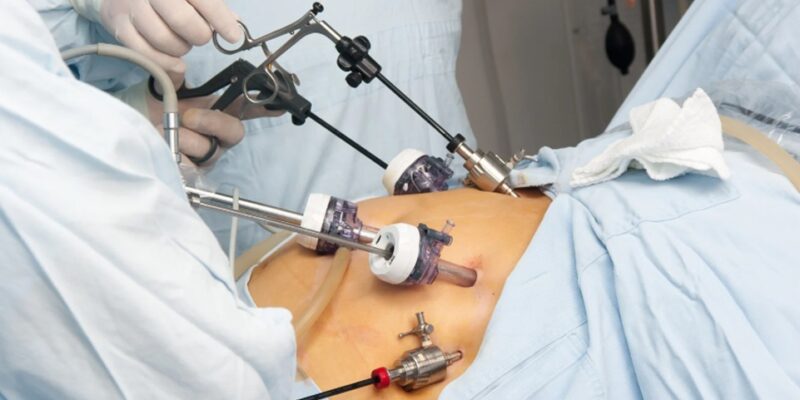Embarking on a transformative health journey often involves bold steps, and for many, bariatric surgery in St Louis marks the beginning of a new chapter. Gastric sleeve surgery, a powerful tool in the fight against obesity, requires a well-planned recovery strategy to ensure optimal results and minimize complications.
The Gastric Sleeve Procedure: A Brief Overview
Gastric sleeve surgery, medically known as sleeve gastrectomy, involves the removal of a significant portion of the stomach, leaving a slender, tube-like structure. This reduced stomach capacity not only limits food intake but also alters hormonal signals related to hunger and satiety, facilitating substantial weight loss.
Immediate Post-Operative Care: The First Steps to Recovery
Pain Management: Comfort is Key
In the initial days following surgery, discomfort is common. Healthcare providers typically prescribe a tailored pain management plan, which may include both medication and non-pharmacological techniques. Patients should communicate openly about their pain levels to ensure optimal comfort without over-reliance on pain medication.
Wound Care: Vigilance in Healing
Proper care of surgical incisions is paramount. Patients receive specific instructions on keeping the wound sites clean and dry. Regular inspection of these areas helps in the early detection of any signs of infection, such as unusual redness, swelling, or discharge.
Nutrition: Rebuilding Your Relationship with Food
The post-surgery diet progresses through several stages, each designed to allow the stomach to heal while providing essential nutrients:
- Clear liquids: Hydration is the primary focus.
- Full liquids: Introduces more substantial nutrition.
- Pureed foods: Begin the transition to solid foods.
- Soft foods: Prepares the digestive system for regular eating.
- Regular diet: Emphasizes nutrient-dense, whole foods.
Adhering to this progression is crucial for avoiding complications and ensuring proper healing. Patients work closely with nutritionists to tailor their diet plan to their individual needs and healing progress.
Physical Activity: A Gradual Return to Movement
While rest is essential initially, early mobilization plays a vital role in recovery. Patients typically begin with short, gentle walks, gradually increasing duration and intensity as their healing progresses. This approach helps prevent blood clots and promotes overall healing.
For those wondering about when it’s safe to resume daily activities like driving, this article provides helpful insights on navigating your road to recovery post-gastric sleeve surgery.
As recovery advances, a more structured exercise regimen becomes crucial. This often includes a combination of cardiovascular activities and strength training tailored to the individual’s fitness level and weight loss goals.
Emotional Well-being: Nurturing Mental Health During Recovery
The recovery period can be emotionally challenging. Many patients experience mood fluctuations as they adjust to significant lifestyle changes. Support groups and counseling services offer valuable emotional support and practical advice during this transition period.
Medical Follow-up: Ensuring Long-term Success
Regular check-ups with the healthcare team are essential for monitoring progress and addressing any concerns. These appointments typically include:
- Nutritional assessments
- Weight checks
- Overall health evaluations
- Adjustments to care plans as needed
This ongoing care helps ensure the long-term success of the surgery and supports patients in maintaining their weight loss and health improvements.
Recognizing Complications: When to Seek Help
While complications are uncommon, awareness is crucial. Patients should seek immediate medical attention if they experience:
- Severe, persistent pain
- High fever
- Prolonged nausea or vomiting
- Signs of infection at incision sites
Prompt attention to these symptoms can prevent more serious complications and ensure a smoother recovery process.
Long-term Lifestyle Adaptation: Sustaining Success
The journey doesn’t end with physical recovery. Long-term success requires sustained lifestyle changes, including:
- Maintaining a balanced, nutrient-rich diet
- Regular physical activity
- Ongoing medical check-ups
- Stress management techniques
These changes support not only weight maintenance but overall health and well-being.
Emerging Trends in Bariatric Recovery
The field of bariatric surgery is continuously evolving. Recent advancements include:
- Enhanced recovery protocols, reducing hospital stays
- Personalized nutrition plans based on genetic profiles
- Telemedicine for more accessible follow-up care
These innovations aim to improve recovery experiences and long-term outcomes for patients undergoing gastric sleeve surgery.
Conclusion: A New Beginning
Recovery from gastric sleeve surgery marks the beginning of a transformative journey. By following these guidelines and maintaining open communication with healthcare providers, patients can navigate the recovery process successfully. This journey, while challenging, offers the potential for significant improvements in health, quality of life, and overall well-being. With dedication and support, individuals can embrace their new lifestyle and the positive changes it brings.







Comments